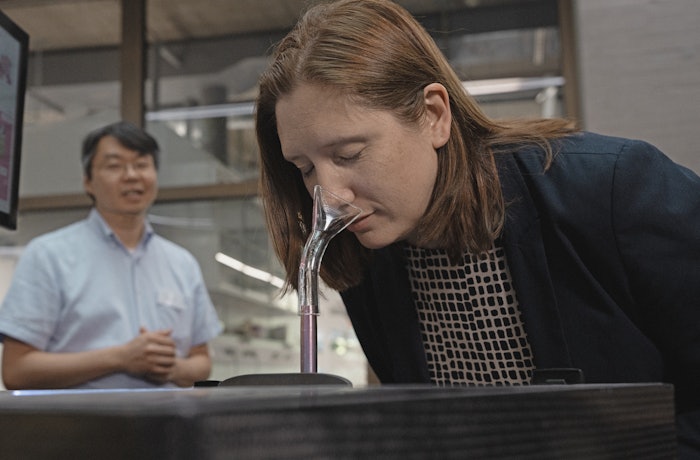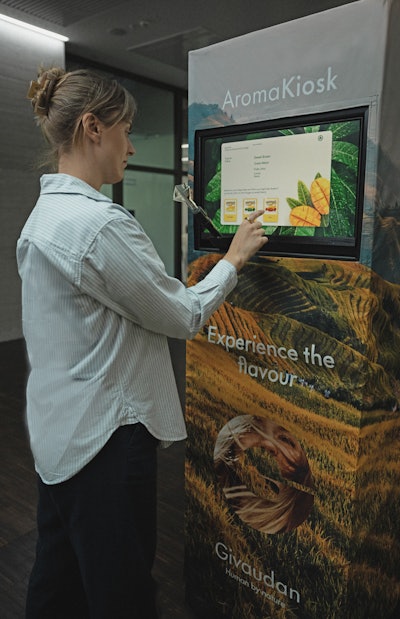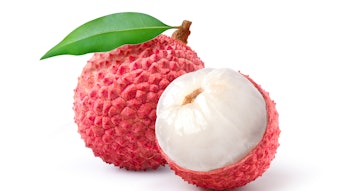
Givaudan has expanded the Protein Hub at its flagship Zurich Innovation Centre in Kemptthal, Switzerland to support the growth of dairy alternatives. The expanded Hub offers specialized expertise, state-of-the-art digital technologies, and an integrated portfolio of solutions designed specifically for dairy alternatives to accelerate product development and co-create new food experiences in collaboration with customers.
Related: Givaudan Debuts Digital Sensory Insights Tool
 Givaudan Taste & Wellbeing has launched a new digital sensory insights tool called the Aroma Kiosk. Designed to connect with consumers in dynamic environments such as grocery, universities and shopping malls, the Aroma Kiosk gathers valuable consumer insights and recommend products in real time.
Givaudan Taste & Wellbeing has launched a new digital sensory insights tool called the Aroma Kiosk. Designed to connect with consumers in dynamic environments such as grocery, universities and shopping malls, the Aroma Kiosk gathers valuable consumer insights and recommend products in real time.
Givaudan president Europe Taste & Wellbeing Doruk Ongan shared, “At Givaudan, we have a unique approach to co-creation where we work side-by-side with our customers, partners, start-ups, chefs, academics and many others as a driving force for innovation. We’re excited to open the doors of the Protein Hub to customers in the alternative dairy space, so we can shape the future of this dynamic category together.”
Fabio Campanile, global head of Science and Technology, Taste & Wellbeing, commented, “At Givaudan, our experts in science and technology focus on satisfying today’s consumer needs, while exploring the taste and functionality of various protein sources–from plants to precise fermentation–and leading new innovations for the future. In addition to our in-house knowledge, technology and research programs, we have created a global innovation ecosystem to support our customers in markets around the world with facilities such as the Protein Innovation Center in Singapore, the MISTA Center in San Francisco and the Tropical Innovation Lab in Brazil.”










